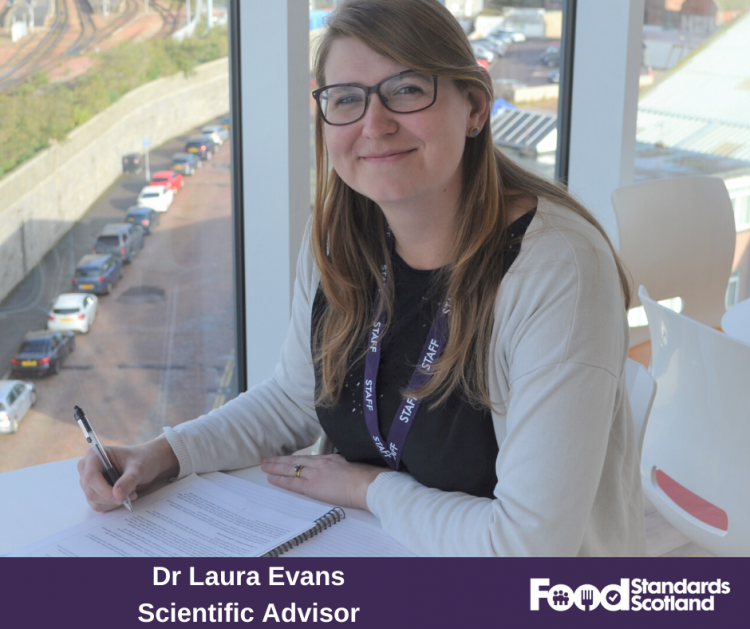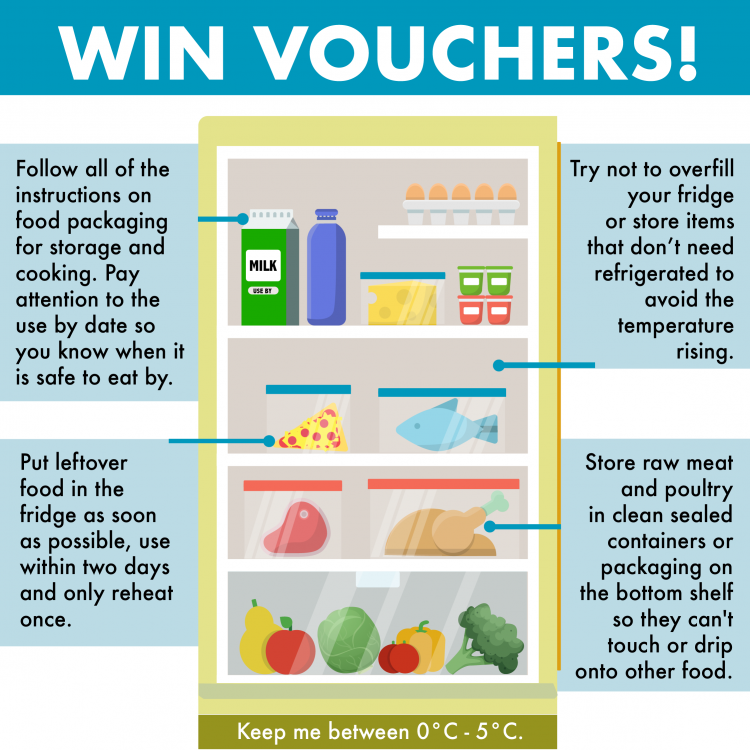News & Updates
Top food safety tips for students

FSS Scientific Advisor, Dr Laura Evans, shares valuable insights on food safety with top tips for students.
For many of you the start to your university or collage adventure might not be going the way you anticipated. But if you have left home or hope do so eventually I wanted to take the opportunity to remind you of some guidance to follow to help keep your kitchen safe and clean, I think I would have benefitted from this advice!
I remember leaving home for the first time and having to take responsibility for shopping and cooking my own meals. It took me a bit of time to enjoy this part of independence but eventually I did! There are lots of things to remember when cooking and storing your meals.
Visit our Instagram page for the chance to win one of three £30 supermarket vouchers to get the new term of to a good start! (T&Cs apply, draw closes 20 September 2020)
Read more food tips to freshen up on your fridge safety
1. Always check the food label
Follow all the instructions on food packaging for storage and cooking. Food labels also include the use by date (for perishable foods such as sliced ham), so read the label carefully to make sure you are storing food correctly and eating it before it goes off. When I do my shopping I look for foods that have longer dates so I know I won’t waste the food. Avoid myths such as the sniff test or looking for signs that it’s gone off.
You can’t see, smell or taste food poisoning bacteria, so stick to the instructions on the food label to stay safe.
If you’re not sure of the difference between use by and best before dates watch our handy video
2. Store raw meat and ready to eat foods separately
It’s important to store raw meat and ready to eat foods on separate shelves in the fridge. We advise that raw meat and poultry is stored in clean sealed containers or packaging, on the bottom shelf of the fridge so they can’t touch other food. I like reusing plastic takeaway containers to store food. Read our advice on storing food safely.
If you don’t have the option, storing food in sealed containers can prevent contamination.
3. Check the temperature of your fridge and don’t overfill it
For a fridge to keep food safe it needs to be kept at a temperature between 0-5°C. Try not to overfill your fridge to avoid the temperature rising. Save space by avoiding chilling food which can be safely stored at room temperature, such as a jar of peanut butter or soft drinks.
If a fridge is overfilled it will reduce the airflow meaning it might increase in temperature.
4. Remember to reheat leftovers safely
I find using leftovers a great way to avoid food waste but there are important rules to follow to avoid food poisoning. Cool food within 2 hours and get it in the fridge, don’t keep it for longer than 2 days and only reheat once. It is important to make sure that any reheated leftovers are steaming hot to kill any bacteria that might cause food poisoning.
If you’re batch cooking meals and have freezer space this is a great way to store food and minimize food waste.,
If you are reheating a takeaway meal, this can only be done once and must be eaten within two days – or follow advice from the takeaway
Always follow these simple rules
5. Make sure food is cooked right through
There are some meats that have to be cooked properly such as burgers, sausages, pork and chicken. Some cuts such as beef or lamb can be rare in the middle, but never ever eat pink chicken as this means it’s undercooked and could lead to campylobacter, the biggest cause of bacterial food poisoning in Scotland.
The general rule is that food should be steaming hot, with no pink meat and the juices should run clear (if you are cooking meat). The best way to tell if food is cooked thoroughly is to use a food thermometer, cooked food reaches 75°C in the thickest part. I love using mine and I think it would be worth putting one on your Christmas list!
Never eat pink chicken as this means it's undercooked and could lead to food poisoning!
6. Clean your kitchen as you go!
I find keeping the kitchen clean will help food preparation to be hygienic and make cooking a bit easier. Cleaning your surfaces, dishes and utensils as you use them will prevent them from building up. Read our useful advice on how to keep your kitchen clean.
When I was at university a cleaning rota helped us split the responsibility making sure everyone did their fair share.
Remember to head to our Instagram page for your chance to win a supermarket voucher!
